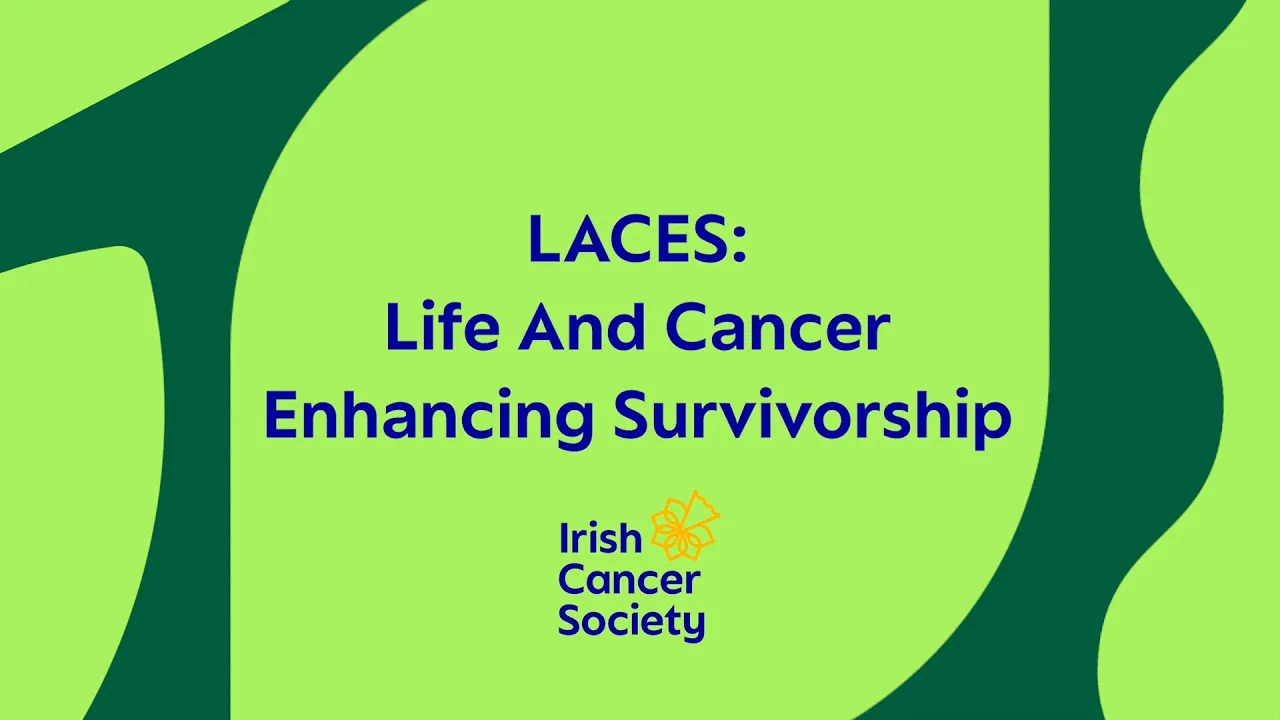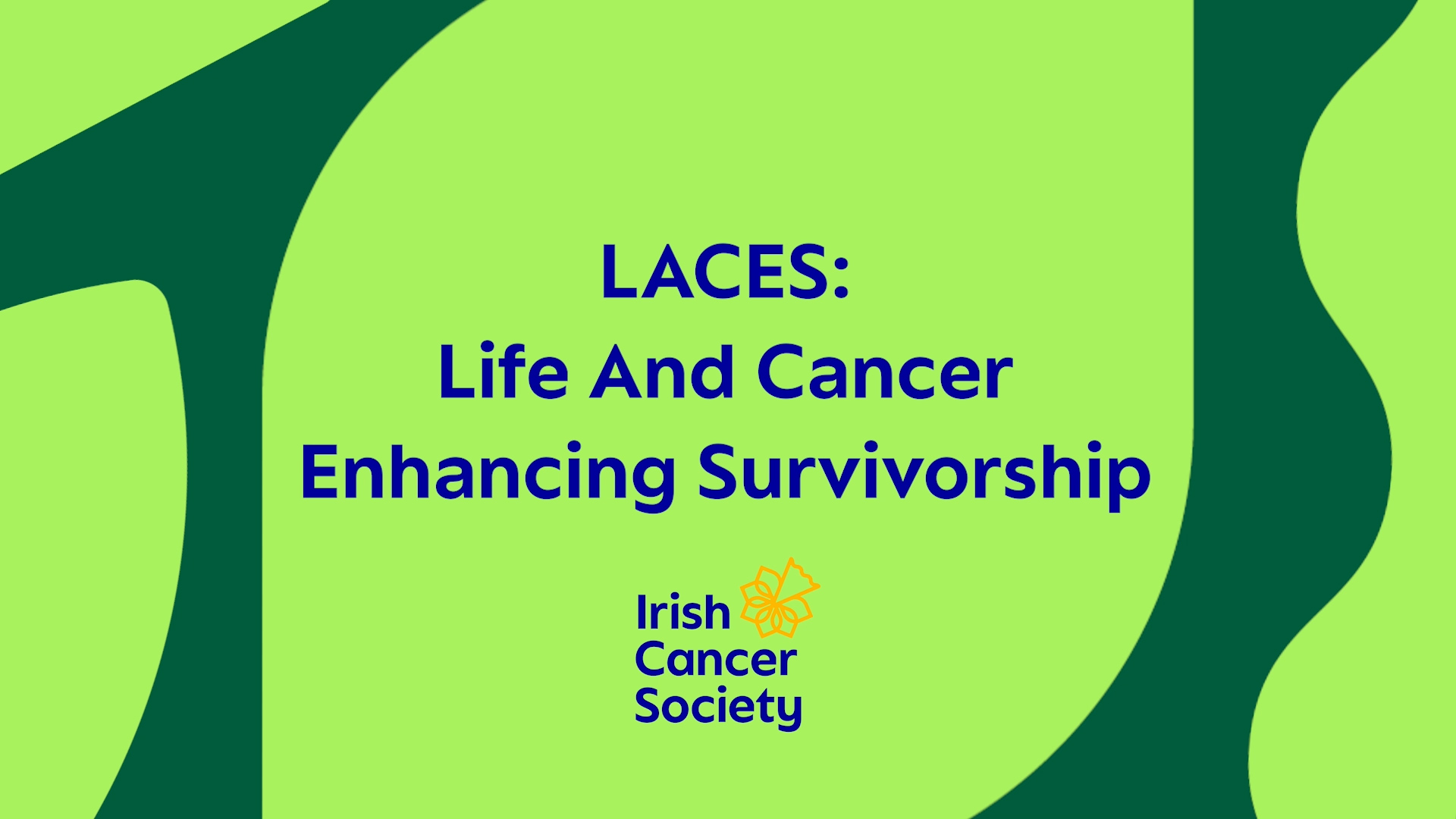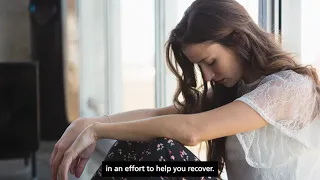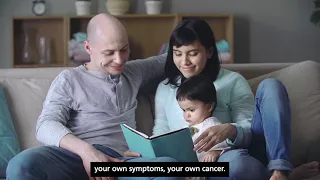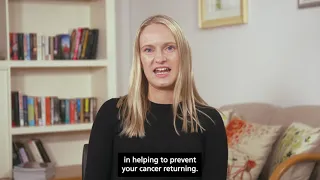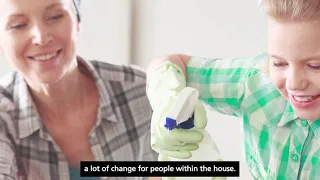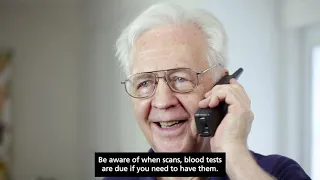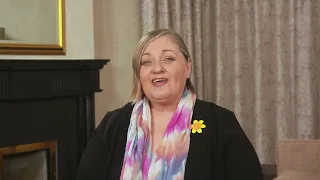LACES 3: Mental health
LACES: Life And Cancer - Enhancing Survivorship. A workshop from the Irish Cancer Society. Part 3: Mental health
0:01
LACES, Life And Cancer - Enhancing Survivorship Workshop.
0:13
Module 3: Mental Health and Wellbeing – In this module we talk about stress, negative thinking and fear, which are common after cancer, and look at ways to handle these negative emotions.
0:29
Question: I’ve finished treatment. Why don't I feel as happy as I thought I would?
0:35
So, finishing your medical treatment for cancer can be a really big milestone in your cancer journey, but it's also a major transition. Suddenly, you're left to your own devices. And it doesn't matter really what kind of cancer treatment you've had, whether it's chemotherapy, radiotherapy, surgery, or perhaps all three. It is still a major transition to move from active treatment to then living with cancer in the long term.
1:01
So, it is not unusual, for cancer patients to often report that they find this time quite stressful. Maybe not immediately, not on the day that you're told that you're over your treatment, but on the days after it and in the months and weeks after it.
1:17
Question: I feel I am only now beginning to process and cope with what has happened to me.
1:23
Every cancer is unique to the person who gets it. Most cancer patients actually only start to process what their cancer diagnosis means to them in the months and years after their diagnosis, and after their treatment finishes. This is a very common event, and in fact, this is a norm for most people.
1:39
Every cancer brings a challenge, doesn't matter whether it's a Grade 1 or a Grade 2 or a Grade 3 tumour. Really, that doesn't impact on how you're going to cope with it. What really impacts is your own coping skills, your unique response to it, your previous experience of cancer, all of these things have much more effect on how you cope than the actual Grade of the tumour sometimes.
1:59
So, give yourself space to adapt to every day as a new challenge, and every day all you've got to do is get through it. You don't have to think too much about the future, just get through today.
2:09
Cancer support centres offer a lot of self-management programmes – things like Cancer, Thrive and Survive – which are really ways to teach you how to manage the after-effects of a cancer diagnosis.
2:22
Question: I feel there is pressure on me to appear positive and it is a bit tiring.
2:28
None of us are positive all the time. We have good days and bad days, and even after your cancer diagnosis, you will still have good days and bad days. Cancer patients are often told that they have to have a positive attitude to their illness, and this indeed is very important, but it becomes a burden after a while.
2:44
What I mean by that is, for a long time, it felt like cancer patients weren't allowed to have bad days, and sometimes maybe even bad weeks, where you're thinking “Why did this happen to me? How am I going to get over it? Will it come back?” These are all really normal responses to cancer.
3:01
Question: I am constantly worrying my cancer will come back. What do you recommend?
3:07
Allow yourself to have bad days. There is absolutely no evidence anywhere that having a negative attitude sometimes causes you any damage in terms of your possible cancer recurrence. Allow yourself to feel down sometimes, have a good cry, have a good rant, maybe give out about the world and how it is, go back to the way you were before you had your cancer where you did have bad days and nothing bad happened because of that.
3:29
What we really want to watch out for is when your bad days become a bad week or a bad month. Then we know that something's going on that you might need more support for.
3:39
Question: I feel I am very hard on myself. What advice do you have?
3:45
Treat yourself like you would your own best friend. If your best friend was having a difficult day, you were having today, would you call them up and give out to them? Would you say, you must cop on to yourself? Would you say, don't be like this, you're not allowed to be negative? No, you wouldn't. You'd say, you're just having a bad day, this will pass.
4:00
So, give yourself the space to actually have a bit of a bad time, but in the knowledge that it will pass. So, it's very important to actually ask yourself, to take responsibility and say, is what I'm doing actually helping me or hindering me in what I want to achieve? And often we find that this stops us in our tracks long enough to say, okay, maybe I need to do something different here.
4:21
Question: Cancer has made me insecure about making plans for the future.
4:27
So, I've been working with cancer patients for about 25 years, and I guess the one thing I've really learned from all of them is that their biggest challenge is learning to live with the uncertainty that a cancer diagnosis causes in their lives. “Gosh, am I in control of anything?”, “What if my next treatment doesn't go right?”, “What if I don't finish my treatment on time?”, “What if my cancer recurs?”, “What if I've got progression?”
4:49
All of these really challenging questions come up and start to bubble up, especially when you’ve finished treatment. So, in my experience, the cancer patients who do best with cancer are the ones who learn to manage that uncertainty, and they learn to do it by actually learning to live in the present moment. That is a huge thing in cancer.
5:07
That doesn't mean you don't plan for the future. It just means that you accept that none of us have control. So, I think, learning to deal with uncertainty is a big challenge, but you must give yourself space to do it, and you must be gentle and kind with yourself when you're doing it.
5:23
Question: I can't help but compare myself to other people.
5:28
One of the things that often happens is that people compare themselves to other people with the same cancer. So, I think it's really, really important to realise that your cancer is unique to you and not compare yourself to anybody else with cancer because you don't know their story and they don't know yours. So, you never know what your own level of coping is until you have to really challenge it.
5:49
Very often after cancer diagnoses, people blame themselves for getting cancer in the first place. And not just for the cancer diagnosis, but also for the amount of distress they feel that they may have caused their family, their partner, their children.
6:01
But nobody sets out to get cancer, so blaming yourself is really not a good way of coping and it's going to actually affect your ability to manage your own symptoms around cancer. Guilt and anger are two emotions that are very difficult to manage generally, and they are often two emotions that take up a lot of our own energy.
6:21
Question: Do you have any advice on how to manage and express emotions?
6:26
Very often we find it very difficult to express some of our emotions. And the ones that we see as negative, the ones we learned in childhood, emotions like anger and guilt and resentment and frustration – these emotions are often difficult to find a way of expressing that's safe.
6:44
So, if you feel that you're really stuck and not being able to express your feelings, either find a good friend that you trust or a good relative, perhaps your partner, or sometimes it’s easier to talk somebody outside the family.
7:00
So, often, seek out support maybe through your local Daffodil Centre, about what supports are available in my area. And we just need to realise that these feelings are just feelings. They're not facts. They just come and go, like, all feelings come and go.
7:14
I really encourage people to seek out support because a problem is shared is a problem halved. And once you've said the words out loud, they lose a lot of their power. When they're running around inside your head as thoughts, they get more and more powerful and more and more distressing.
7:27
We have over 45 cancer support centres in this country, and you can access them. They're all free of charge. They're all run by people who are well experienced in supporting people with cancer. And, also, they're all confidential.
7:44
Question: Could you tell me about counselling?
7:50
Counselling for cancer is different to other kinds of counselling because often, people, what they're really seeking is support. People are kind of, a bit wary about going for counselling, telling your life story, but actually supportive care in cancer has many different forms. And we often do recommend formal counselling, from a psychologist, a counsellor, a psychotherapist.
8:12
But for a lot of people with cancer, they don't need that level of support. What they need is a listening ear.
8:18
Question: I have a lot of fear and anxiety around the cancer coming back.
8:25
Many things can trigger anxiety about a cancer recurrence. For example, if your friend is diagnosed with cancer, if you hear of somebody who had treatment with you whose cancer has progressed, for example. All of these things will make you say, “sure I'm not that different from them, so why can't the same thing happen to me?” So, these fears are completely normal, and I suppose what we really want to do is say, when do you need to start to take steps to know that your fear of recurrence is beyond what's normal?
8:49
So, if it's in your mind every day, if you're checking your body all the time, if you're not enjoying life, because you're afraid to have certain kind of foods, even as a treat, if you find that it’s keeping you awake at night, if you're irritable, maybe you’re feeling down quite a lot of the time. These are all signs that you need to address these issues.
9:10
So, one of the most common events in living with cancer is coming up to 3 or 6 month scans or regular checkups, even yearly scans or yearly clinic appointments. And, again, this is very normal because you know now the doctors are going to pay attention, the team are going to pay attention to how you're doing. They're going to ask you lots of questions, and they're going to send you for a scan or blood tests or whatever it is you're having.
9:34
And your fear is that the first time you had cancer, you didn't know it was there – maybe it was found in a routine mammogram or a routine checkup, and then suddenly, you're back, facing the same thing again.
9:49
So, it's very normal to have these fears, and that will reach a peak normally in the days before the checkup, and then it will subside once you get news that is good and everything is normal.
9:58
But if you find that your fear of recurrence is really prevalent in your mind all day every day, and maybe you find it hard to sleep over it, then that's a sign, that’s your body telling you – you need to do something about this now. And so, you may need to seek further help for that kind of, way of living.
10:16
Question: Can you suggest some techniques to reduce stress?
10:23
We can reduce stress by taking regular exercise, mind-body relaxation, creativity, sharing your story of cancer, journaling, talking to peers.
10:37
Question: How can I move on from my cancer experience?
10:43
People sometimes really struggle to find meaning in their cancer and they have lots of questions like “Why did it happen to me?”, “Why did it happen to me now, at this point in my life, just when I retired, just when I had a new baby, just when I got a new job that I've wanted all my life?” And so, sometimes the challenge can be to say, okay well, actually maybe I need to redefine my values, my priorities, what's really, really important to me.
11:05
And so, cancer can often be a catalyst to do that. And so, there can be what we call meaning-making in cancer. So, a way of finding meaning that is different than what you thought it was before. The diagnosis is cancer, but what it means is up to you.
11:19
Be hopeful about your cancer. Be hopeful about how you're going to manage it. This is a new challenge, and you will learn things about yourself in this journey that you never knew, so it's your unique take on it. How are you going to manage it? Because at the end of the day, it's your journey through cancer.
11:37
For more information, please visit www.cancer.ie/LACES
LACES: Life And Cancer – Enhancing Survivorship playlist
